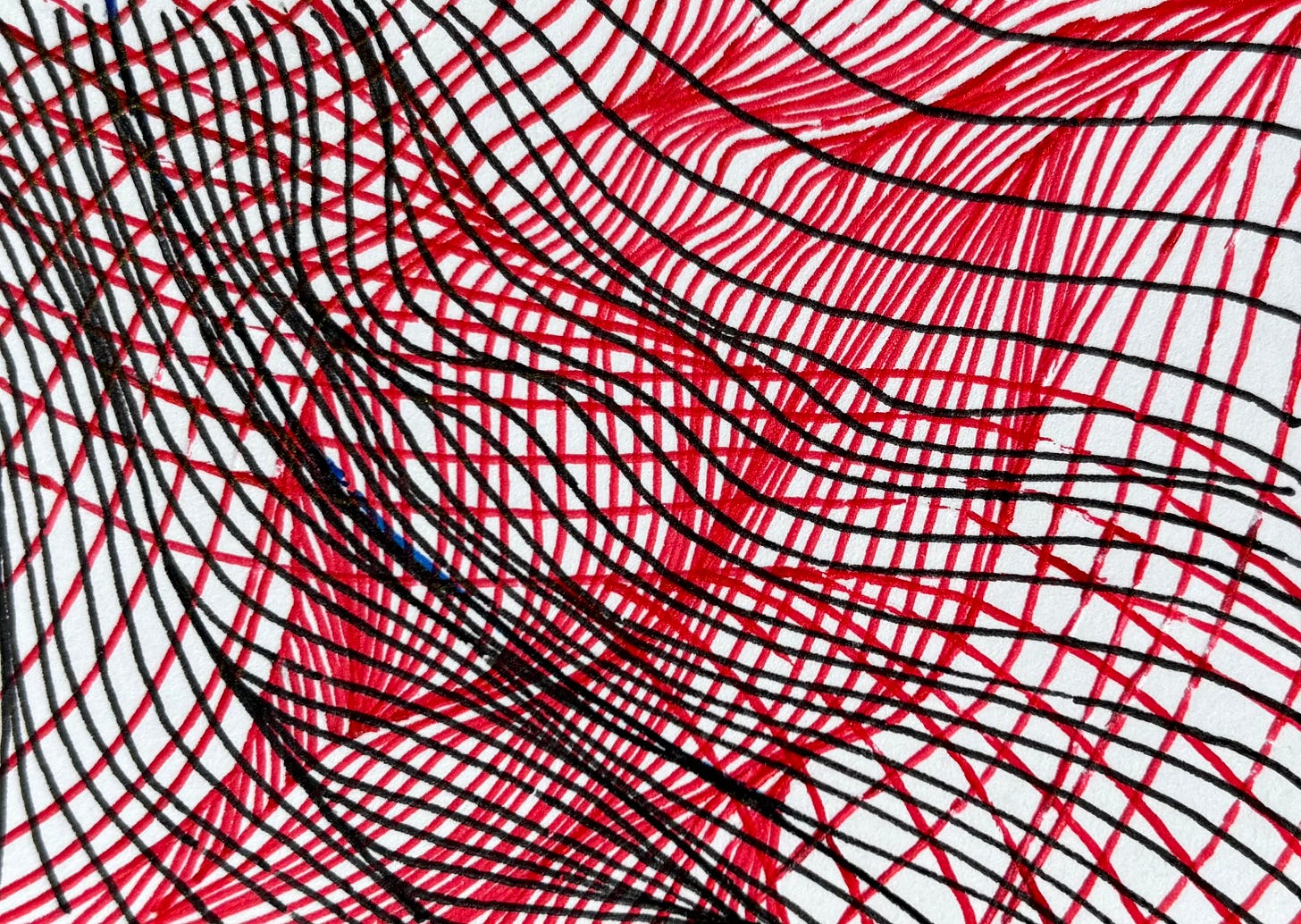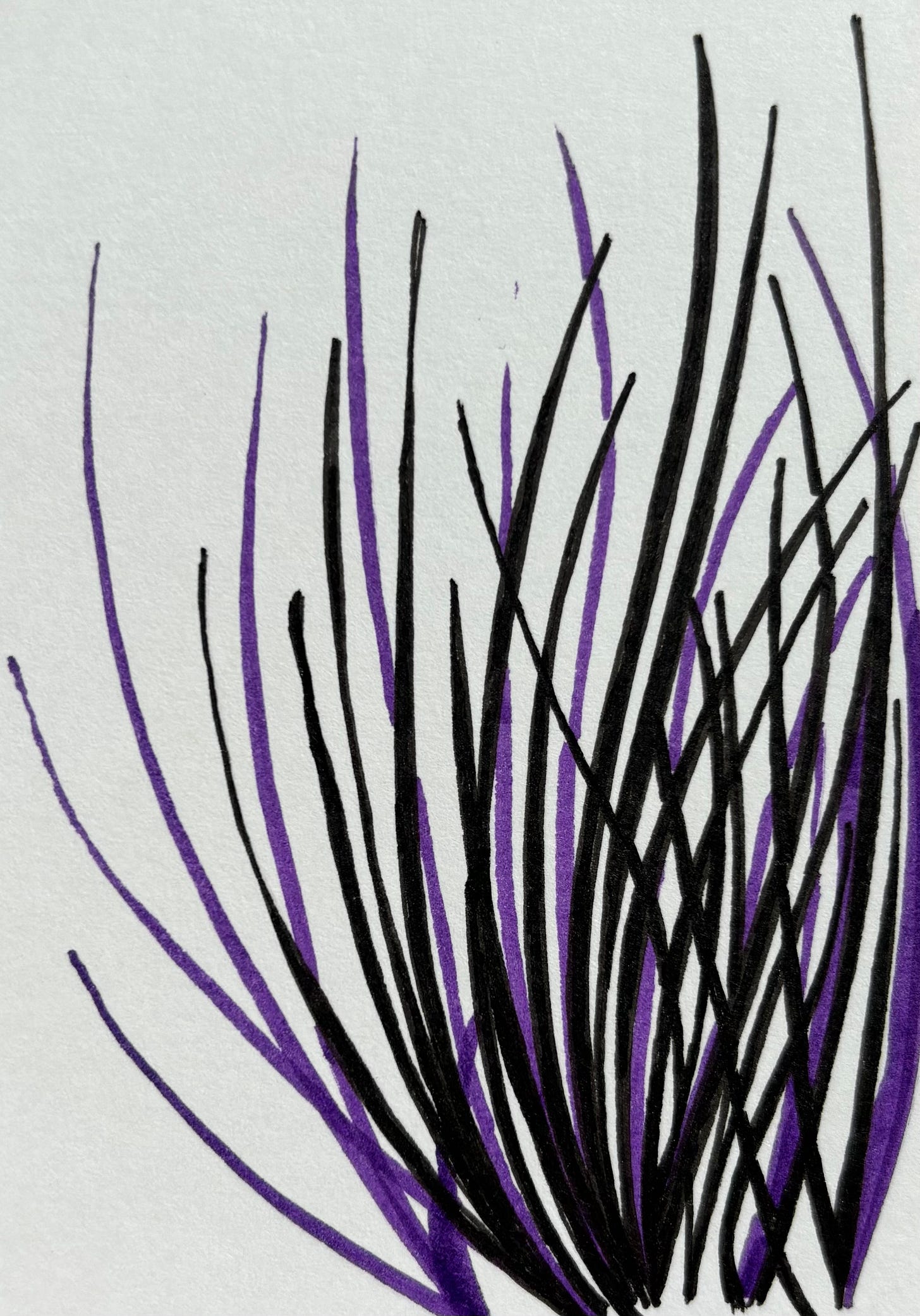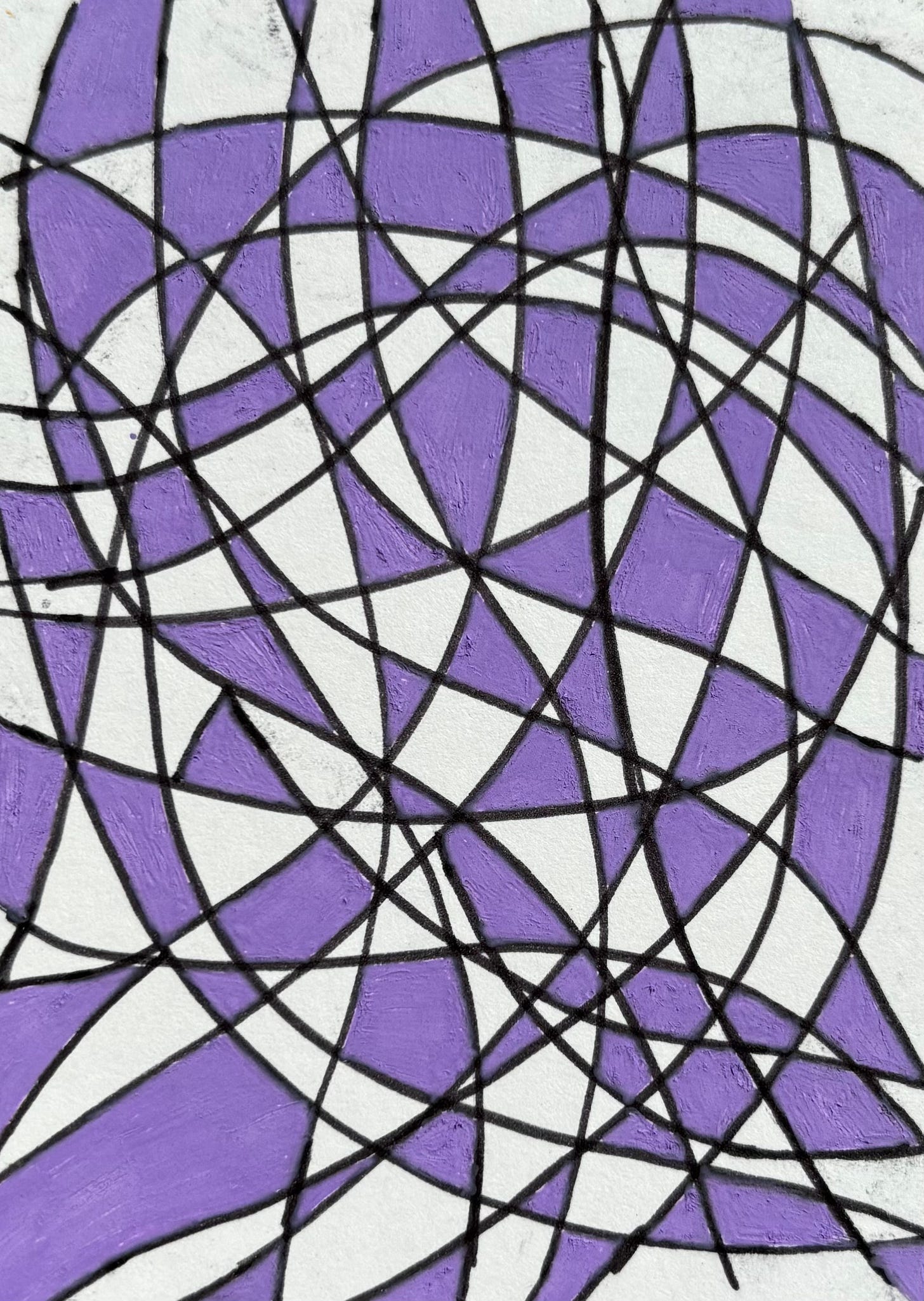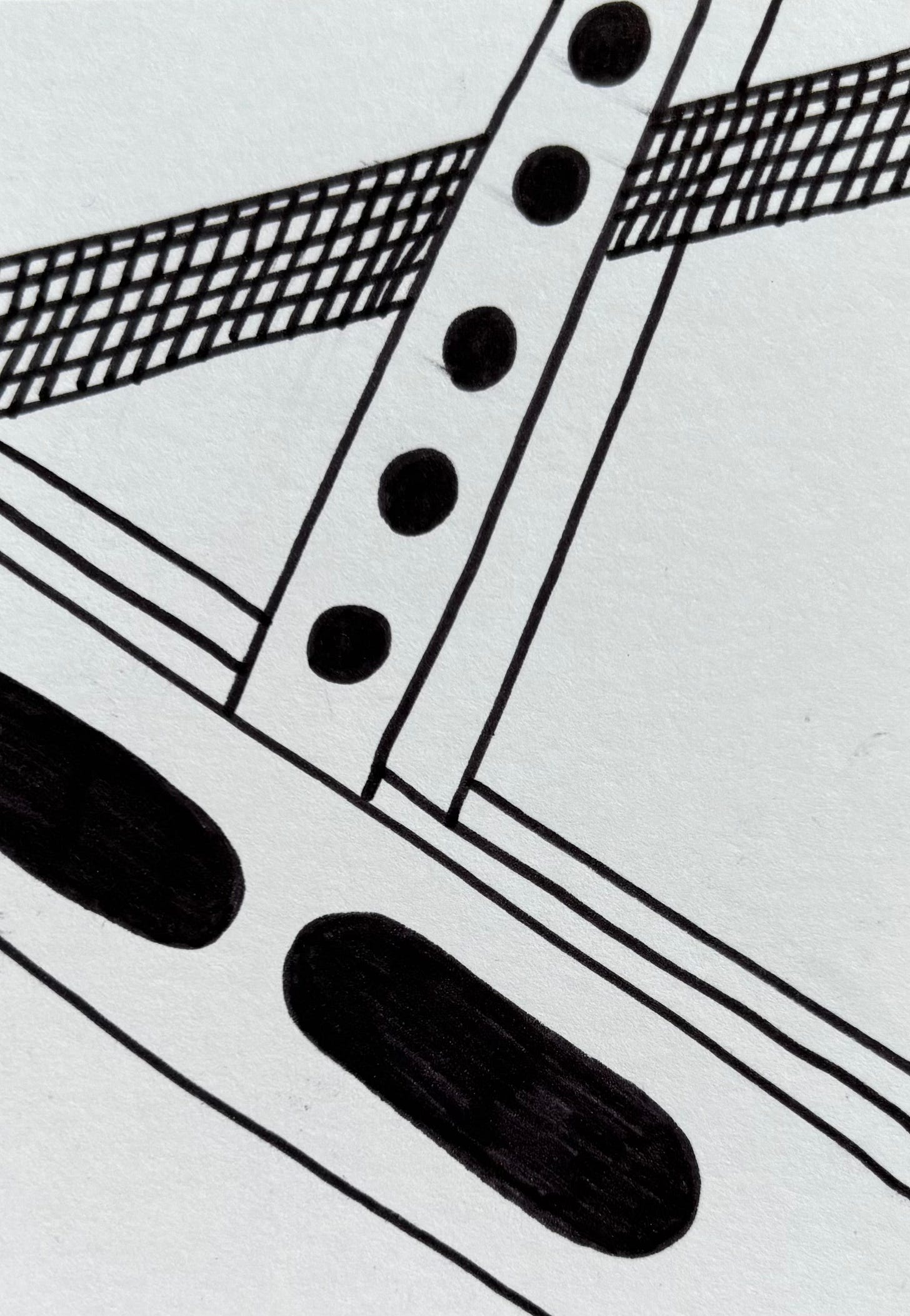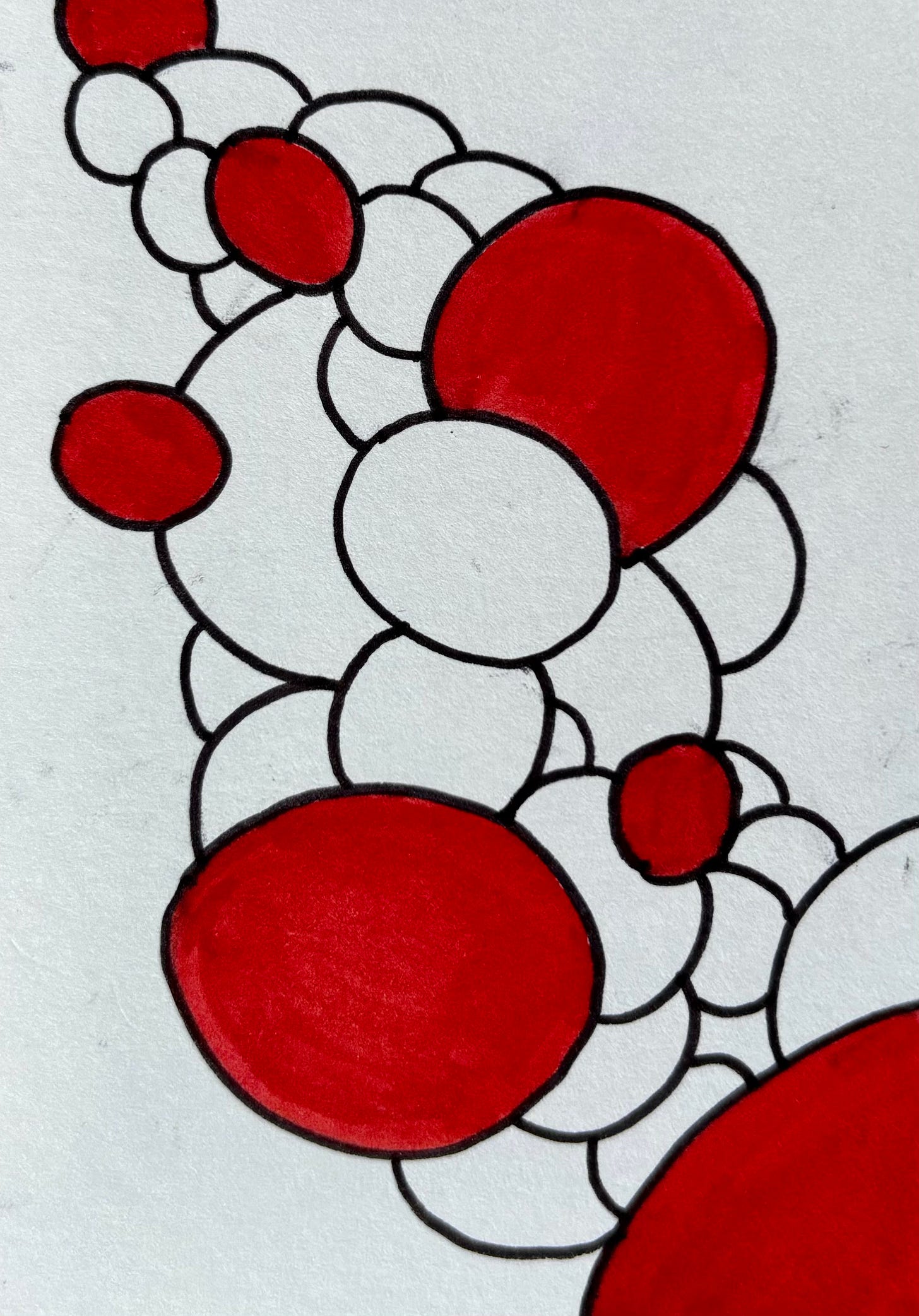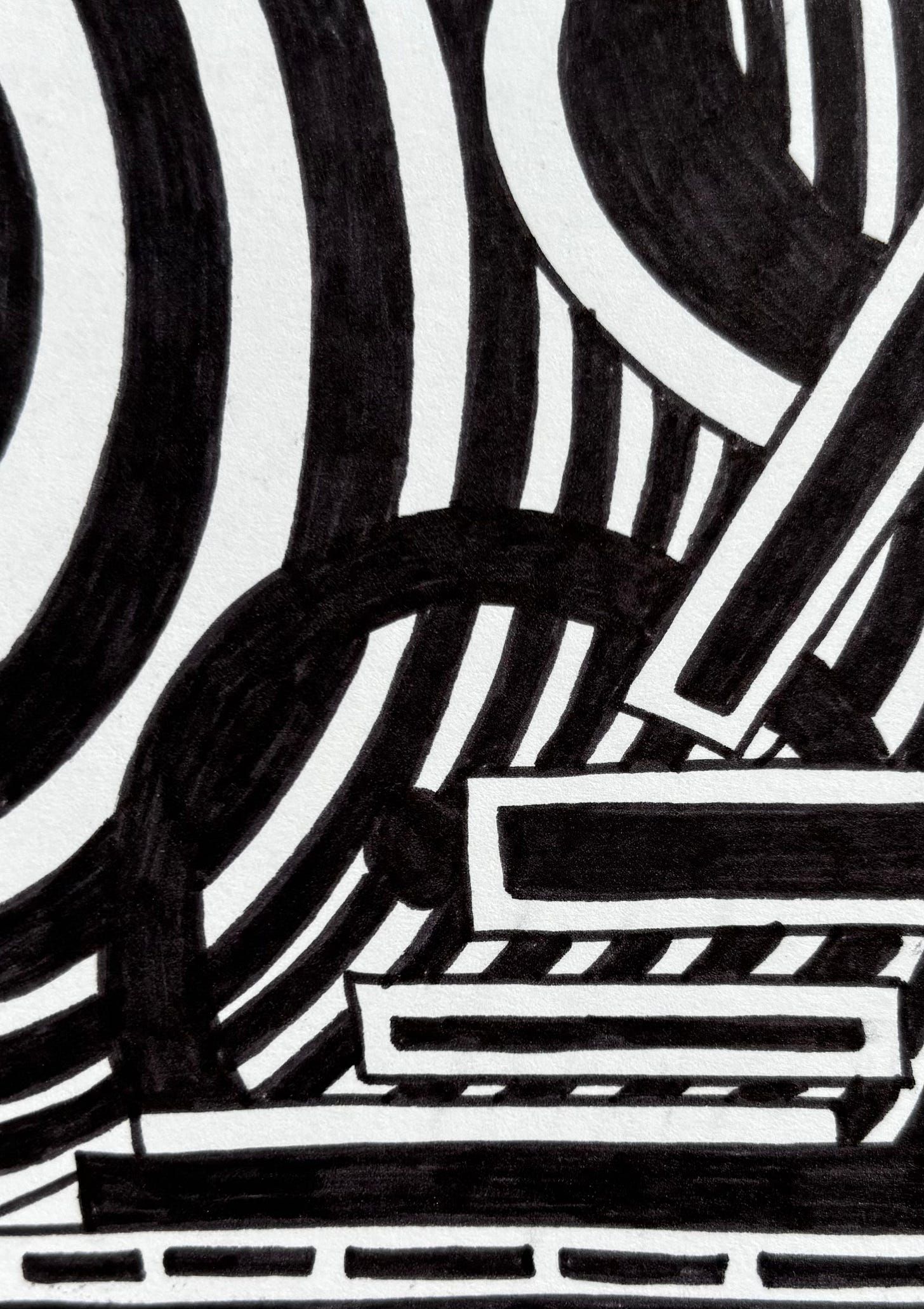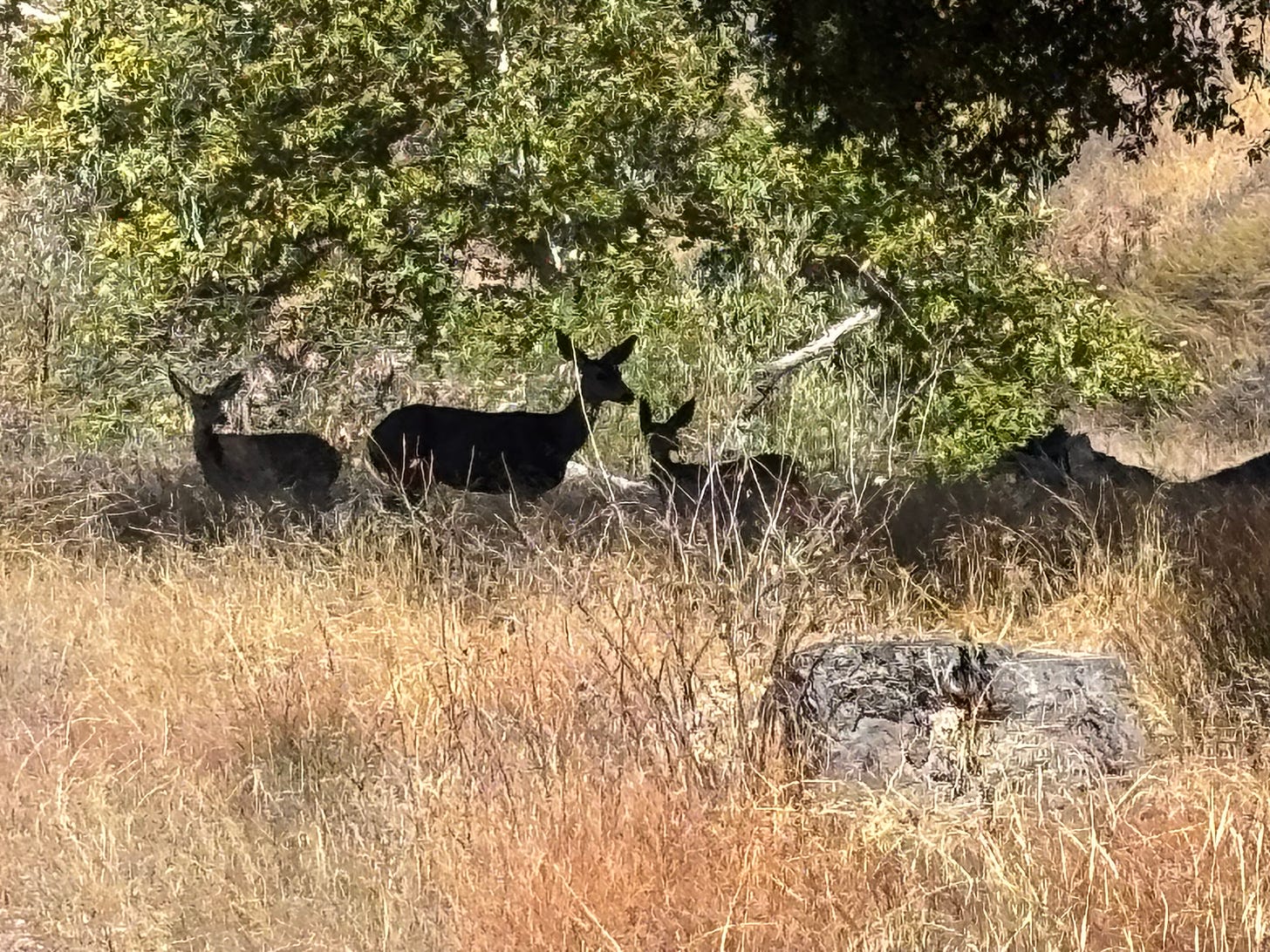What Shouldn’t Exist, Does
On love, attention, and the courage to stop scrolling
“The supernatural doesn’t exist … but it sure feels like it.”
— White Zombie, Super-Charger Heaven
Every story about recovery has a hinge — a small moment when everything shifts. This is mine: the moment the imagined world fell away and something real took its place.
Some moments shouldn’t exist — at least not for people rebuilding their lives after heartbreak, scams, and silence. And yet, here I am, holding someone’s hand in a parking lot, realizing that what I thought was impossible is suddenly real.
The Choice
I finally drew a line between the digital world and the real one.
I stopped logging in to the places where I’d spent months chasing connection through text bubbles and curated photos. I wrote the hard messages — the goodbye to Gigi, who kept slipping between truth and performance, and the honest note to Dana, who didn’t deserve to be left wondering.
Both exchanges hurt more than I expected. But a choice only counts when it comes at a cost.
I chose Leela (not her real name). Or maybe we chose each other.
When I first saw her, my brain went silent and a single thought arrived fully formed: “Oh God, I’m in love.”
This is not supposed to happen!
I’d planned to move slowly, to protect my heart, but the moment she smiled, every rule I’d made for myself dissolved. She was smart, funny, grounded, beautiful, effortless to be around — someone whose quiet confidence made me want to stand taller.
For the first time in several months, I closed every app and meant it. No more parallel conversations, no more half-attention. Just one person, one story, one lovely stroll down the beach at the water’s edge, one life-changing conversation.
When I inquired a bit about her name, she replied, “Oh, that’s a topic for a second date.”
The Hand in the Parking Lot
Fast forward to that second date: a hike in Placerita Canyon State Park.
Afterward, we stopped for kebabs and kept talking like we’d known each other for years. By the way, the story about her name was nothing like what I’d expected, but the heart-melting smile that appeared when I asked was.
Walking back to the truck, arms full of leftovers, I offered my hand with a joke — “Be careful in this parking lot.”
We both knew what I was doing. She laughed, but she didn’t pull away. Her hand was small and a little rough, not the soft, practiced smoothness I’d known before. It startled me — in the best way. It felt alive, the texture of someone who truly inhabits her body. For a few seconds, we just walked, our hands joined, sunlight flashing off windshields around us.
It wasn’t dramatic or cinematic; it was ordinary and perfect.
I teased, “Of course I’m not holding your hand because I like you or anything,” and she laughed harder, looking up with that smile that still hits me like warmth in my chest. By the time we reached the truck, we’d let go, but the gesture stayed with me. The point wasn’t to hold on; it was to say, I’m here.
I grabbed her hand again as we headed toward Lowe’s — everything about that moment felt right, yet my mind raced (as it tends to do), analyzing the moment, even as I was living it.
The Quiet After the Noise
That tiny moment rewired me.
For months, I’d filled every gap in my day with digital chatter — scrolling, swiping, imagining futures that never existed. Now, when my phone sits silent, I can feel the leftover buzz of that habit. It’s strange and a little lonely, like standing in a room after the music stops. But the stillness is teaching me something new about attention.
Real connection doesn’t need constant proof; it asks for presence.
Leela and I don’t text much.
When we do, it’s brief and real. Her space gives me mine back.
Most nights, I used to sit in my reading chair from seven until eleven, “checking in” on people I’d never met more often than needed. Those hours slid by disguised as curiosity, but they were really avoidance.
Now those hours once again belong to what actually feeds me — drawing, writing, listening to podcasts that make me think instead of scroll.
Learning a New Rhythm
I’ve been working through Rick Hanson’s course, The Enlightened Brain, which explores the intersection of neuroscience and Buddhist meditation.
He explains neuroplasticity in relation to Buddhist states of consciousness, which are allegedly experienced during meditative practice. More generally, however, he also discusses how both positive and negative experiences impact the brain.
I told Leela about it, and she lit up.
We spent half our hike trading stories about how positivity and negativity shape entire lives — how some people seem to breathe complaint like oxygen.
She recommended her own favorite podcasts on health and nutrition, especially those focused on gut health — the science of well-being from the inside out. As an RDN (Registered Dietitian), that’s her world, and she lives it.
At lunch, I told her, “You actually live what you teach.”
She smiled. “I try my best.” It struck me then: she followed her dream into health, just as I followed mine into art. Two people building lives around what matters to them. That recognition felt like quiet symmetry.
On the trail back, a couple trudged past us, clearly exhausted. I nodded hello; Leela added, “You’re almost there!” They laughed, faces brightening. I told her how kind that was. She shrugged. “I like it when people say that to me.”
That’s who she is — kindness without effort, the kind that makes strangers breathe easier. That’s what I want in my evenings now: curiosity instead of distraction, learning instead of noise, small gestures that make the air lighter.
The Soundtrack Home
With the third date quickly approaching — Devo & The B-52’s at the Hollywood Bowl — I have music on the brain, and I’m playing the B-52’s as I edit this post.
Much of this post was composed on my morning walk, a 90-minute ritual.
As I got closer to home, I stopped dictating and just let myself feel the music, each song mapping a piece of the transformation I’ve been describing:
White Zombie – Super-Charger Heaven → “the supernatural shouldn’t exist, but it does.” I thought this budding relationship couldn’t exist, either.
Talking Heads – City of Dreams → I used to live there; now the dream has a face.
Depeche Mode – Personal Jesus → letting go of digital saviors.
Devo – (I Can’t Get No) Satisfaction → real plans, real joy.
Silverchair – Tomorrow → stepping into the unknown.
Devo – Speed Racer → absurdity as freedom.
Stone Temple Pilots – Interstate Love Song → movement, continuity.
Limp Bizkit – Nobody Loves Me → the ghost of old loneliness fading in the rearview.
By the time the last chords ended, I was home.
Leela’s photograph glowed on my phone — radiant, beautiful.
I set it as her picture. It felt like a small ritual: proof that what shouldn’t exist, does.
Reflection
Real life isn’t louder than fantasy. It’s quieter, steadier, and infinitely more alive.
Prompt for readers: When was the last time something real replaced something you only imagined?
_____
Author: Jeff Brackett is a writer, artist, and recovering academic exploring connection, creativity, and life on the spectrum. He is the creator of Aspie Art Journey, an ongoing series about art as spiritual practice, and Dating App Diaries, a reflective chronicle of intimacy and imagination in the digital age. His forthcoming illustrated memoir, Lines on the Spectrum, weaves art, autism, scams, and love into a story about rebuilding a life from the inside out.


